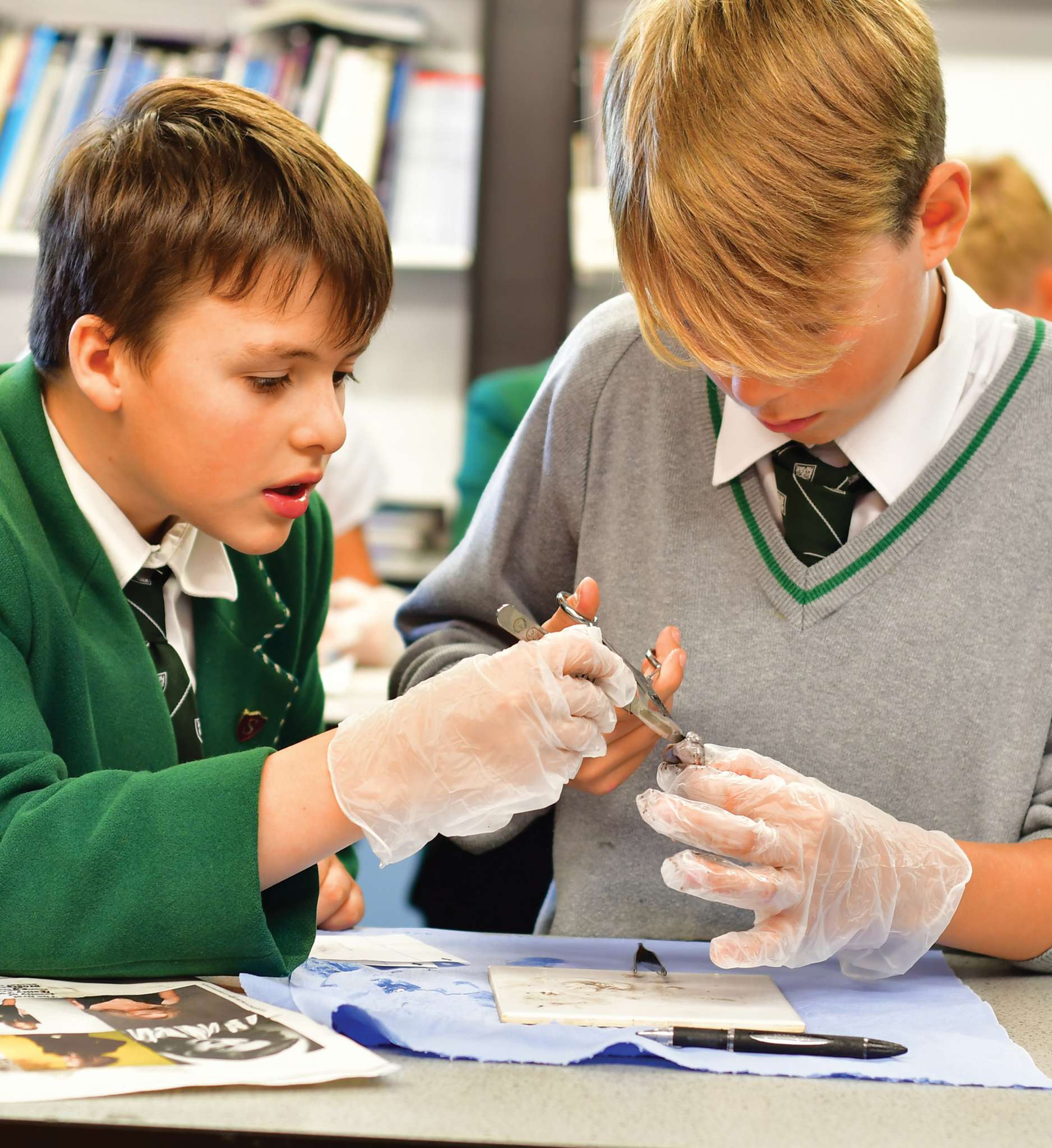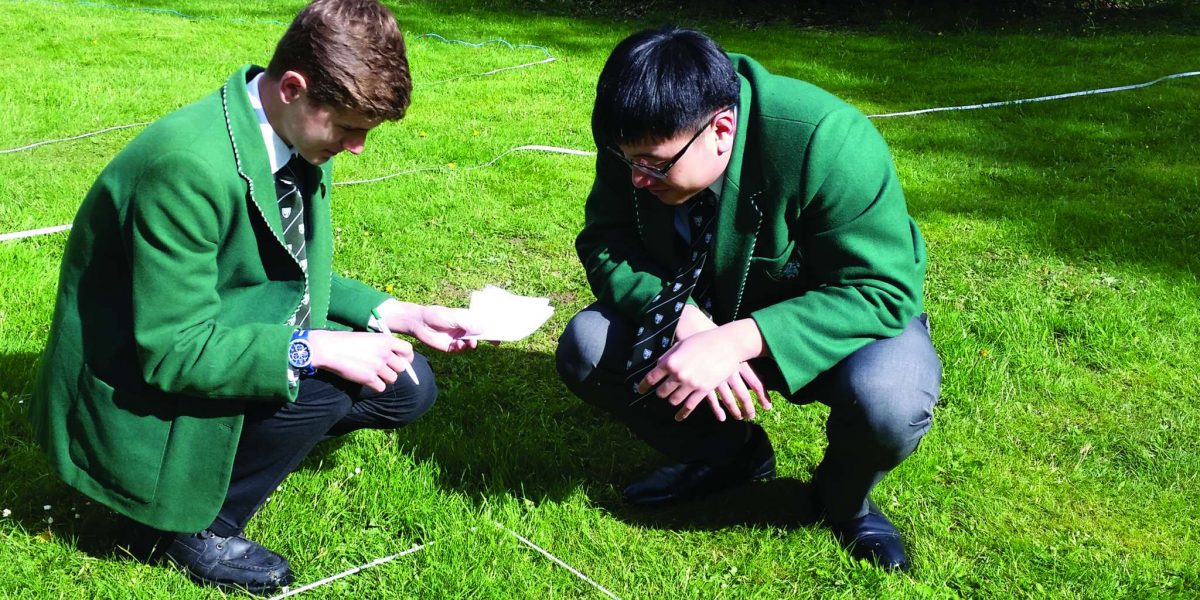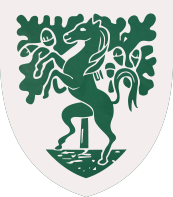Examination Board: OCR
Specification: 21st Century Science Specification codes: Combined Science J260
Biology J257
Chemistry J258
Physics J259

Combined Science
For those pupils who do not wish to take the three separate sciences as one of their four options, there is a course of compulsory Combined Science which includes equal components of Biology, Chemistry and Physics.
The course encourages the study of Science using a narrative based approach where ideas are introduced within relevant and interesting settings. This helps pupils to link their knowledge to familiar concepts. Practical skills are embedded within the specification and pupils are expected to carry out particular experiments in preparation for the written examination which will specifically test these skills. There is no longer controlled assessment in Science.
The syllabus for both the Combined Science course includes the following topics:
B1: You and your genes
B2: Keeping healthy
B3: Living together – food and ecosystems
B4: Using food and controlling growth
B5: The human body – staying alive
B6: Life on Earth – past, present and future
C1: Air and water
C2: Chemical patterns
C3: Chemicals of the natural environment
C4: Material choices
C5: Chemical analysis
C6: Making useful chemicals
P1: Radiation and waves
P2: Sustainable energy
P3: Electric circuits
P4: Explaining motion
P5: Radioactive materials
P6: Matter – models and explanations
BCP7: Ideas about Science
BCP8: Practical Skills
There are four examinations of 1 hour 45 minutes taken at the end of Year 11. Three papers are worth 95 marks and one is worth 75 marks.
Separate Science
Pupils who choose to opt for the Separate GCSE Sciences will, at the end of the courses, gain three separate GCSEs, in Biology, Chemistry and Physics. The additional content that they study covers more challenging material and is ideally suited to those pupils considering studying the Sciences at A Level or those who enjoy learning about scientific issues.
The courses study the same topics as Combined Science but cover additional content and include greater detail and depth.
| Biology Course Content B1: You and your genes B2: Keeping healthy B3: Living together – food and ecosystems B4: Using food and controlling growth B5: The human body – staying alive B6: Life on Earth – past, present and future B7: Ideas about Science B8: Practical Skills Chemistry Course Content C1: Air and water C2: Chemical patterns C3: Chemicals of the naturals environment C4: Material choices C5: Chemical analysis C6: Making useful chemicals C7: Ideas about Science C8: Practical Skills Physics Course Content P1: Radiation and waves P2: Sustainable energy P3: Electric circuits P4: Explaining motion P5: Radioactive materials P6: Matter – models and explanations P7: Ideas about Science P8: Practical Skills Each Science GCSE is examined in two papers, each 1 hour 45 minutes and worth 90 marks. |



